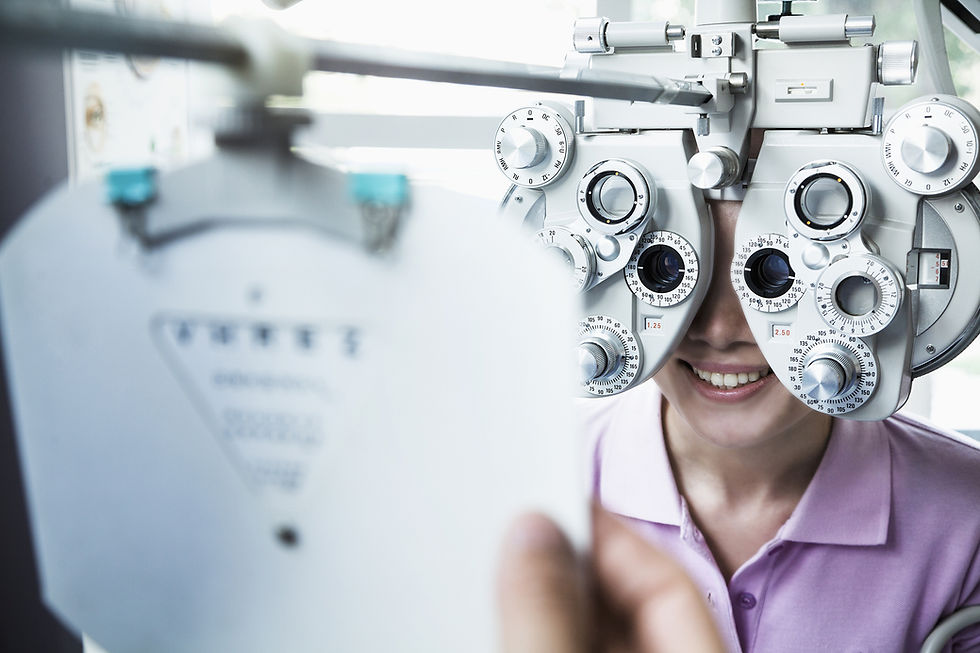Visual disorders are a common but often unrecognized problem in PD. Symptoms like double vision, blurry vision, eyelid abnormalities and dry eye are under reported by people with PD and may be overlooked by a primary care doctor.
A recent study published in the journal Neurology, found that 82% of people with Parkinson's reported one or more eye problems compared to 48% of people without the disease. Researchers also found that eye problems interfered with daily life for 68% of people with Parkinson's compared to 35% of people without the disease.
If changes in vision occur, it‘s important get an eye exam to rule out other conditions (such as cataracts or macular degeneration) and correct refractive errors with prescription lenses. Consultation with a neuro-ophthalmologist -- an ophthalmologist or a neurologist with training in the diagnosis and treatment of problems of the eye and nervous system — can be beneficial in addressing vision problems caused by PD that interfere with everyday activities.
Double Vision and Blurry Vision
In PD, depletion of dopamine in retinal cells and decreased dopaminergic innervation of the visual cortex can lead to problems with oculomotor control. Just like PD can slow movement in other parts of the body, it can also impair eye movement and coordination.
There are 3 types of eye movements that can be affected by PD:
Saccades - rapid, involuntary eye movements used for scanning can become slower and delayed or may also become too fast and poorly controlled due to levodopa-related dyskinesia
Pursuit - eye movements used for smoothly following a moving target become slower and jerky
Vergence - coordinated movement of the eyes inward (convergence) or apart (divergence) and accommodation for near vision tasks is impaired causing eye strain and double vision
A neuro-ophthalmologist is a good resource for understanding how visual problems, like blurry and double vision, can be improved by adjusting PD medications and dosages. In cases of convergence insufficiency, single vision lenses (using one pair of glasses for reading and another for distance) or glasses fitted with prisms may be recommended. Prisms help to bend light to the proper focal point on the retina when the eyes are not able to achieve this on their own.
Eyelid abnormalities and dry eye
PD can also impact the function eyelids. People with PD blink less frequently, which can lead to dryness, irritation or burning of the eyes. A neuro-ophthalmologist may prescribe eye drops (artificial tears) and ointments or block the tear ducts with silicone plugs to help manage these symptoms.
Some people with Parkinson's have the problem of excessive blinking which may lead to involuntary closure of the eyes, called blepharospasm. People with PD who have blepharospasm may benefit from injections of botulinum toxin (Botox) in the muscle surrounding the eye. This treatment — performed by a neuro-ophthalmologist, movement disorders specialist, or ophthalmologist — is usually repeated every three to four months and can be very effective in improving symptoms.
Less commonly, a person with PD may have apraxia of eyelid opening — an inability to open the eyes voluntarily. People who experience apraxia of eyelid opening can also sometimes benefit from botulinum toxin injections. In addition, lid crutches or cosmetic tape can be used to help keep the eyes open.

Comments